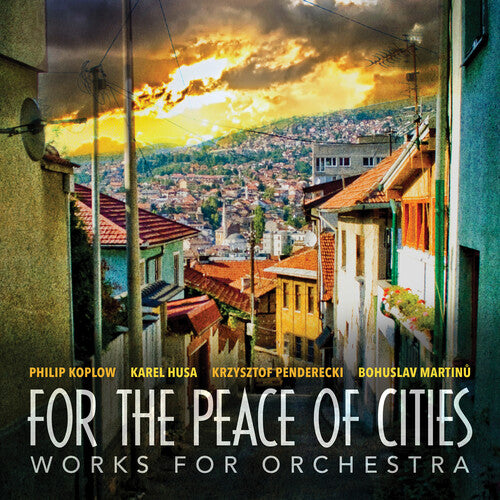Ravello
Husa/ Cincinnati Chamber Orchestra - For the Peace of Cities
Husa/ Cincinnati Chamber Orchestra - For the Peace of Cities
Usually ships within 1 to 2 weeks.
Couldn't load pickup availability
SKU:RAVL8015.2
Share
"With the arts we can keep faith with our ancestors, speak for justice, and even address the most tragic and painful issues. If you are hurt and angry don't use violence - write a poem or a song. Use your feelings to create something." These words by late composer Philip Koplow (1943-2018) perfectly encapsulate both his life mission as a composer and the mission of FOR THE PEACE OF CITIES. Released posthumously, this collection features Koplow's masterpieces for orchestra as well as three 20th-century works that commemorate the lives lost in war tragedies. Koplow's two pieces on the album, For the Peace of Cities and How Sweet the Sound, were both written from a place of desire to bring hope and healing into a violence-torn world. The title track, inspired by the Dayton Accord in Koplow's home state, commemorates the lives brutally lost in Bosnian War at the end of the 20th Century. How Sweet the Sound, originally written for solo cello, is inspired by the tune "Amazing Grace" - a tune which has brought comfort and hope to generations of people in times of pain. The piece is filled with variations on the old hymn - as Koplow stated, "each variation is in a new key, implying that God's love and inspiration is available to all people in all times." The music of Philip Koplow is complemented by three similarly-minded composers: Karel Husa, Krzysztof Penderecki, and Bohuslav Martinu. Each of these composers' three pieces on the album honor the lives lost in three wartime tragedies: Husa's Music for Prague 1968 which retold the story of the Soviet Union crushing the Prague Spring reform movement in Husa's homeland; Threnody to the Victims of Hiroshima which Penderecki dedicated to the Japanese victims after hearing the piece live and being moved by the emotional charge of the performance; and Martinu's Memorial to Lidice honors the victims of the massacre in Lidice, Czechoslovakia in 1942.



